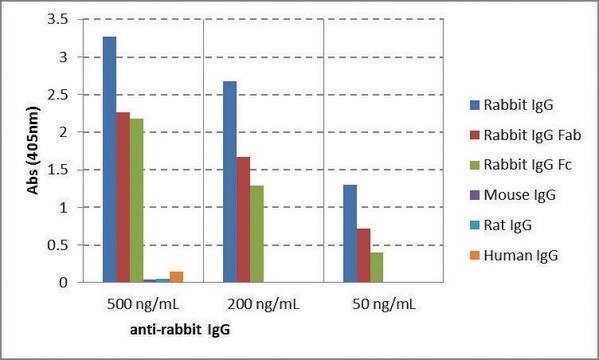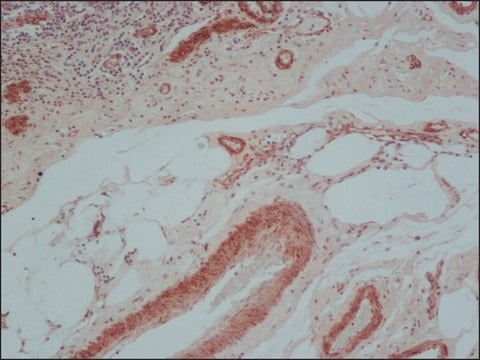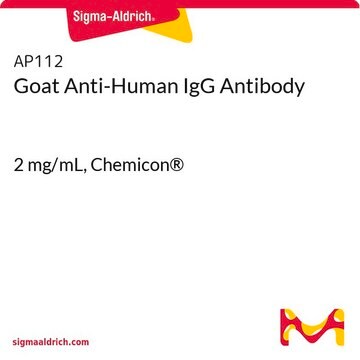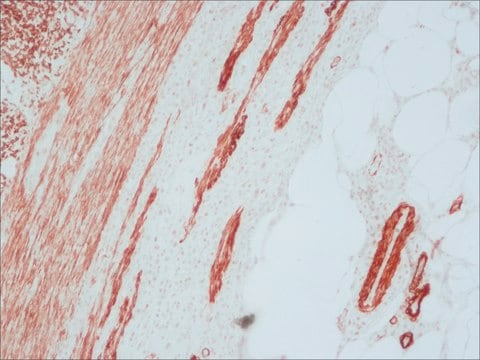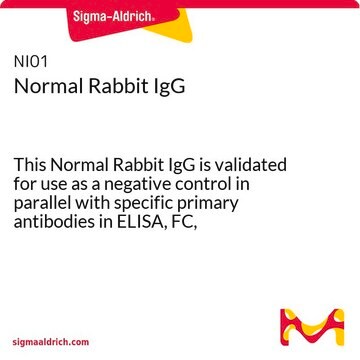B7139
Anti-Rat IgG (whole molecule)–Biotin antibody produced in goat
affinity isolated antibody, buffered aqueous solution
Sign Into View Organizational & Contract Pricing
All Photos(1)
About This Item
Recommended Products
biological source
goat
conjugate
biotin conjugate
antibody form
affinity isolated antibody
antibody product type
secondary antibodies
clone
polyclonal
form
buffered aqueous solution
technique(s)
direct ELISA: 1:20,000
storage temp.
2-8°C
target post-translational modification
unmodified
General description
IgGs are glycoprotein antibodies that modulate several immune responses. Rat IgGs have four subclasses, namely, IgG1, IgG2a, IgG2b, and IgG2c. Rat IgGs against target proteins are often used as primary antibodies in various research applications. Thus, secondary anti-rat IgG is a useful tool for the analysis of target proteins
Anti-Rat IgG (whole molecule)-Biotin antibody binds to all rat immunoglobulins.
Anti-Rat IgG (whole molecule)-Biotin antibody binds to all rat immunoglobulins.
Immunogen
Purified rat IgG
Application
Anti-Rat IgG (whole molecule)-Biotin antibody is suitable for use in immunohistochemistry and sandwich ELISA.
Applications in which this antibody has been used successfully, and the associated peer-reviewed papers, are given below.
Immunohistochemistry (1 paper)
Immunohistochemistry (1 paper)
Physical form
Solution in 0.01 M phosphate buffered saline pH 7.4, containing 1% bovine serum albumin and 15 mM sodium azide
Disclaimer
Unless otherwise stated in our catalog or other company documentation accompanying the product(s), our products are intended for research use only and are not to be used for any other purpose, which includes but is not limited to, unauthorized commercial uses, in vitro diagnostic uses, ex vivo or in vivo therapeutic uses or any type of consumption or application to humans or animals.
Not finding the right product?
Try our Product Selector Tool.
Storage Class Code
10 - Combustible liquids
WGK
nwg
Flash Point(F)
Not applicable
Flash Point(C)
Not applicable
Certificates of Analysis (COA)
Search for Certificates of Analysis (COA) by entering the products Lot/Batch Number. Lot and Batch Numbers can be found on a product’s label following the words ‘Lot’ or ‘Batch’.
Already Own This Product?
Find documentation for the products that you have recently purchased in the Document Library.
Sanne S Berger et al.
PloS one, 8(7), e69117-e69117 (2013-07-23)
Members of the Plasmodium falciparum Erythrocyte Membrane protein 1 (PfEMP1) family expressed on the surface of malaria-infected erythrocytes mediate binding of the parasite to different receptors on the vascular lining. This process drives pathologies, and severe childhood malaria has been
J W Simecka et al.
Infection and immunity, 57(11), 3570-3575 (1989-11-01)
Chronic respiratory disease in rats, resulting from Mycoplasma pulmonis infection, is useful in the study of the immunological mechanisms in similar inflammatory diseases and provides a unique opportunity to study the interactions between systemic and mucosal immune systems in a
Tomomi Kurane et al.
Okajimas folia anatomica Japonica, 96(2), 49-56 (2020-01-07)
Embryo implantation is an immunologically paradoxical event. In humans and rodents, blastocysts adhere to uterine epithelium and then invade into endometrial stroma, while maternal body is protected from extraneous materials by its immune system. Eosinophils, a kind of leucocytes involving
Maria A Usik et al.
International journal of molecular sciences, 22(17) (2021-09-11)
The effect of weightlessness on gametogenesis and the functional state of female germ cells are still poorly understood. We studied the ovaries of Drosophila melanogaster, the full development cycle of which (from zygote to sexually mature adults) passed under simulated
Analía Gabriela Ricci et al.
Reproductive sciences (Thousand Oaks, Calif.), 18(7), 614-622 (2011-01-27)
The main factor involved in neovascularization of ectopic endometrial tissue in endometriosis is the vascular endothelial growth factor (VEGF), which is produced both by the endometrial implant and by peritoneal macrophages. On the other hand, bevacizumab is an antiangiogenic agent
Our team of scientists has experience in all areas of research including Life Science, Material Science, Chemical Synthesis, Chromatography, Analytical and many others.
Contact Technical Service

